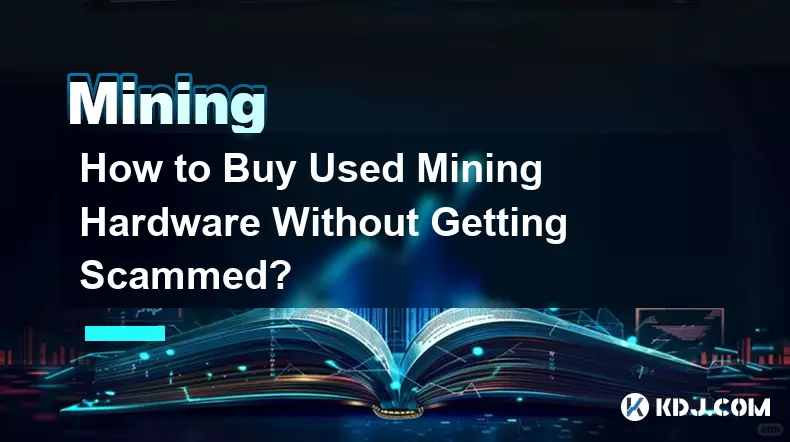-
 bitcoin
bitcoin $87959.907984 USD
1.34% -
 ethereum
ethereum $2920.497338 USD
3.04% -
 tether
tether $0.999775 USD
0.00% -
 xrp
xrp $2.237324 USD
8.12% -
 bnb
bnb $860.243768 USD
0.90% -
 solana
solana $138.089498 USD
5.43% -
 usd-coin
usd-coin $0.999807 USD
0.01% -
 tron
tron $0.272801 USD
-1.53% -
 dogecoin
dogecoin $0.150904 USD
2.96% -
 cardano
cardano $0.421635 USD
1.97% -
 hyperliquid
hyperliquid $32.152445 USD
2.23% -
 bitcoin-cash
bitcoin-cash $533.301069 USD
-1.94% -
 chainlink
chainlink $12.953417 USD
2.68% -
 unus-sed-leo
unus-sed-leo $9.535951 USD
0.73% -
 zcash
zcash $521.483386 USD
-2.87%
What are the currencies mined by CPU?
CPU mining involves using a computer's CPU to solve mathematical equations, verifying blockchain transactions, and potentially earning cryptocurrency rewards, such as Monero (XMR) or Ravencoin (RVN).
Jan 12, 2025 at 09:47 am

- Overview of CPU Mining
- Types of Cryptocurrency Mined by CPU
- Profitability of CPU Mining
- Hardware Requirements for CPU Mining
- How to Start CPU Mining
CPU mining, also known as crypto mining, is the process of using a computer's central processing unit (CPU) to solve complex mathematical equations to verify blockchain transactions and earn cryptocurrency rewards. While specialized hardware called ASICs (Application-Specific Integrated Circuits) are typically used for large-scale mining operations, CPU mining remains a viable option for individual miners or those with limited resources.
Types of Cryptocurrency Mined by CPUVarious cryptocurrencies can be mined using CPUs, including:
- Monero (XMR): A privacy-focused cryptocurrency designed to be resistant to ASICs, making it suitable for CPU mining.
- Ravencoin (RVN): A blockchain platform designed for asset issuance, security tokens, and other specialized use cases.
- Zcash (ZEC): A privacy-enhanced cryptocurrency that uses the Equihash algorithm, which is optimized for CPU mining.
- Grin (GRIN): A privacy-focused cryptocurrency that employs the Mimblewimble protocol, which is tailored for efficient CPU mining.
- Ergo (ERG): A blockchain platform that supports smart contracts and non-fungible tokens (NFTs), featuring the Autolykos algorithm designed for CPU mining.
- Komodo (KMD): A blockchain ecosystem that facilitates the creation of custom blockchains, using the Equihash algorithm for CPU mining.
- Vertcoin (VTC): A decentralized cryptocurrency that promotes fairness and accessibility, employing the Lyra2REv2 algorithm for GPU and CPU mining.
- Dogecoin (DOGE): A popular meme cryptocurrency known for its strong community, which uses the Scrypt algorithm that is suitable for CPU mining.
- Siacoin (SC): A decentralized cloud storage platform that utilizes the Blake2b algorithm, which allows for CPU mining.
- Bitcore (BTX): A cryptocurrency focused on decentralized governance and micropayment applications, featuring the X11 algorithm for CPU mining.
The profitability of CPU mining depends on several factors, including:
- Electricity Costs: Mining often requires significant electricity consumption, so low electricity costs are essential for profitability.
- Hardware Efficiency: The efficiency of your CPU and other components directly impacts mining performance and energy consumption.
- Cryptocurrency Market: The value of the mined cryptocurrency and its market demand influence profitability.
- Mining Difficulty: The computational complexity of mining increases over time, making it harder to find blocks and earn rewards.
The following hardware is typically required for CPU mining:
- High-Performance CPU: A powerful CPU with multiple cores and high clock speeds is crucial for effective mining.
- Mining Software: Specialized software is required to connect your CPU to the blockchain network and perform mining operations.
- Cooling System: Mining generates heat, so a robust cooling system is necessary to prevent overheating.
- Stable Power Supply: A reliable power supply ensures uninterrupted mining and protects your equipment from voltage fluctuations.
- Create a Cryptocurrency Wallet: Establish a wallet to store your mined cryptocurrency.
- Select a Mining Pool: Join a mining pool to increase your chances of finding blocks and earning rewards.
- Download Mining Software: Install mining software compatible with your CPU and the chosen cryptocurrency.
- Configure Mining Settings: Optimize mining parameters within the software based on your hardware capabilities and pool settings.
- Start Mining: Begin the mining process and monitor its progress through the software interface.
- Is CPU mining profitable? Profitability varies based on factors such as hardware efficiency, electricity costs, and cryptocurrency market conditions.
- What is the best CPU for mining? CPUs with high core counts, high clock speeds, and low power consumption are ideal for mining.
- Can laptops be used for CPU mining? While laptops can be used for mining, they are typically less efficient and may experience overheating issues.
- How does mining difficulty impact profitability? Increasing mining difficulty requires more computational power, reducing the frequency of block discoveries and potentially affecting profitability.
- What is a mining pool? A mining pool combines the computational power of multiple miners to increase the chances of finding blocks and sharing the rewards
Disclaimer:info@kdj.com
The information provided is not trading advice. kdj.com does not assume any responsibility for any investments made based on the information provided in this article. Cryptocurrencies are highly volatile and it is highly recommended that you invest with caution after thorough research!
If you believe that the content used on this website infringes your copyright, please contact us immediately (info@kdj.com) and we will delete it promptly.
- Crypto Crossroads: Bitcoin Price Reacts to Fed Jitters Amidst Shifting Sands
- 2026-02-02 05:05:02
- Justin Sun, Tron, Manipulation Allegations: New Bitcoin Strategy Meets Lingering Controversy
- 2026-02-02 05:05:02
- Bitcoin Eyes $77K as Michael Saylor Reaffirms Unwavering Conviction Amidst Market Swings
- 2026-02-02 05:00:02
- Altcoin Season on the Horizon? ETH, XRP, SOL, ADA Face Potential 184x Gains Amidst Shifting Crypto Landscape
- 2026-02-02 05:00:02
- Bitcoin ETF News: Latest Updates Drive Investment and Market Dynamics
- 2026-02-02 04:50:02
- Rare Royal Mint Coin Error Fetches Over £100: The 'Fried Egg' £1 Coin Phenomenon
- 2026-02-02 04:45:01
Related knowledge

How to Earn Passive Income with DePIN Mining? (New Trend 2026)
Feb 01,2026 at 12:40pm
Understanding DePIN Mining Mechanics1. DePIN mining relies on real-world infrastructure participation rather than computational hashing. Users deploy ...

How to Mine Vertcoin (VTC) on Your Gaming Desktop? (One-Click Miner)
Feb 02,2026 at 03:39am
Understanding Vertcoin's Mining Algorithm1. Vertcoin uses the Verthash algorithm, which is intentionally memory-hard and designed to resist ASIC domin...

How to Set Up a Quiet Mining Rig at Home? (Noise Reduction)
Feb 01,2026 at 11:00pm
Acoustic Enclosure Design1. Use rigid, dense materials such as MDF or acoustic-grade plywood for the enclosure walls to block mid-to-high frequency no...

How to Choose a Mining Pool with Lowest Fees? (Fee Comparison)
Feb 02,2026 at 02:39am
Understanding Mining Pool Fee Structures1. Pool operators charge fees to cover infrastructure, maintenance, and administrative costs. These fees manif...

How to Mine Bitcoin on Mac (M1/M2/M3)? (Software Tutorial)
Feb 01,2026 at 07:19pm
Understanding Bitcoin Mining on Apple Silicon1. Bitcoin mining relies on solving cryptographic puzzles using computational power, and Apple’s M1, M2, ...

How to Buy Used Mining Hardware Without Getting Scammed?
Feb 01,2026 at 08:00pm
Research the Seller's Reputation Thoroughly1. Check archived listings and feedback on platforms like Bitcointalk forums, Mining Hardware subreddits, a...

How to Earn Passive Income with DePIN Mining? (New Trend 2026)
Feb 01,2026 at 12:40pm
Understanding DePIN Mining Mechanics1. DePIN mining relies on real-world infrastructure participation rather than computational hashing. Users deploy ...

How to Mine Vertcoin (VTC) on Your Gaming Desktop? (One-Click Miner)
Feb 02,2026 at 03:39am
Understanding Vertcoin's Mining Algorithm1. Vertcoin uses the Verthash algorithm, which is intentionally memory-hard and designed to resist ASIC domin...

How to Set Up a Quiet Mining Rig at Home? (Noise Reduction)
Feb 01,2026 at 11:00pm
Acoustic Enclosure Design1. Use rigid, dense materials such as MDF or acoustic-grade plywood for the enclosure walls to block mid-to-high frequency no...

How to Choose a Mining Pool with Lowest Fees? (Fee Comparison)
Feb 02,2026 at 02:39am
Understanding Mining Pool Fee Structures1. Pool operators charge fees to cover infrastructure, maintenance, and administrative costs. These fees manif...

How to Mine Bitcoin on Mac (M1/M2/M3)? (Software Tutorial)
Feb 01,2026 at 07:19pm
Understanding Bitcoin Mining on Apple Silicon1. Bitcoin mining relies on solving cryptographic puzzles using computational power, and Apple’s M1, M2, ...

How to Buy Used Mining Hardware Without Getting Scammed?
Feb 01,2026 at 08:00pm
Research the Seller's Reputation Thoroughly1. Check archived listings and feedback on platforms like Bitcointalk forums, Mining Hardware subreddits, a...
See all articles










































































